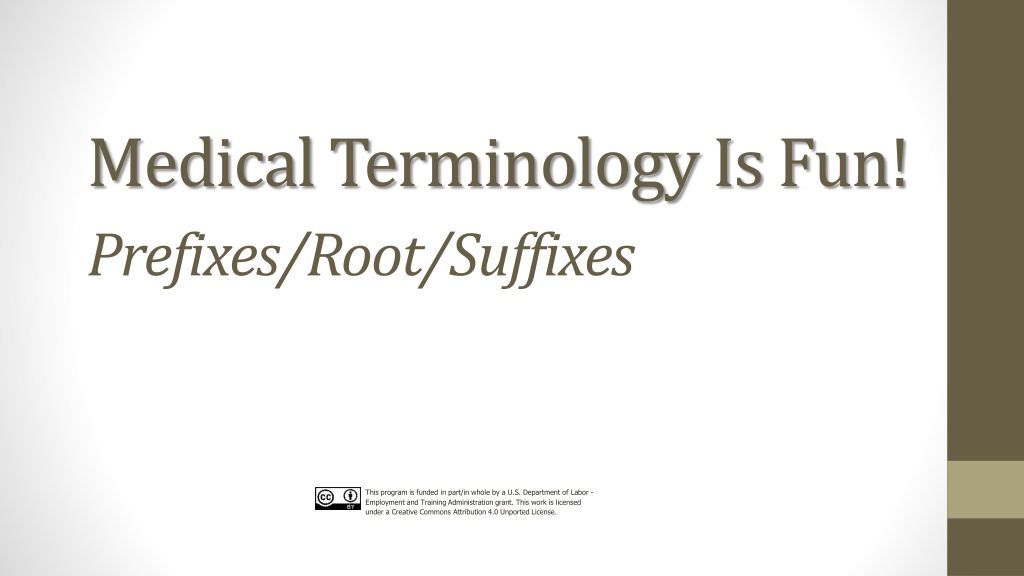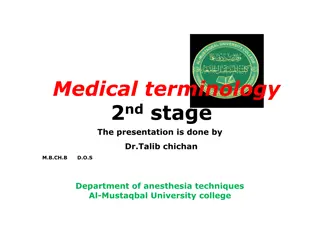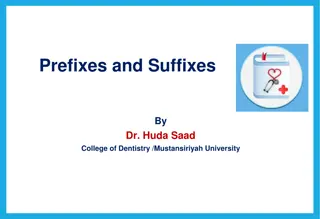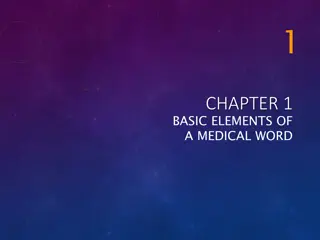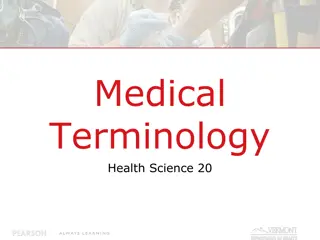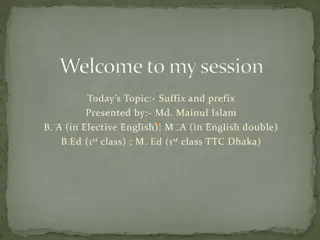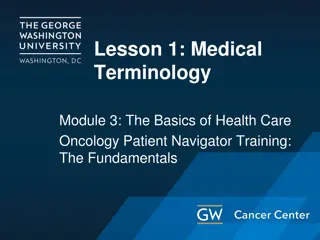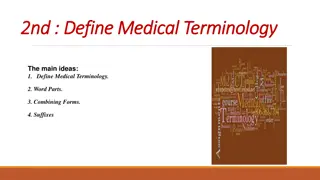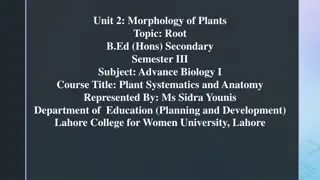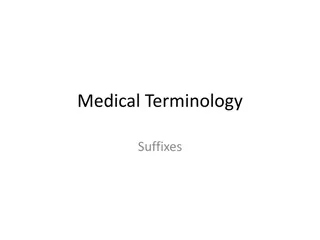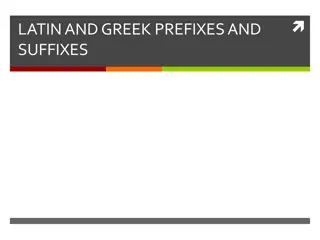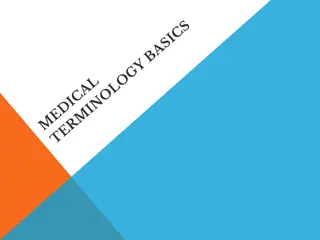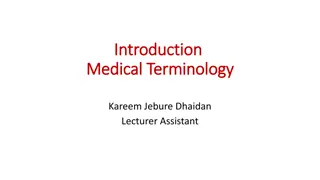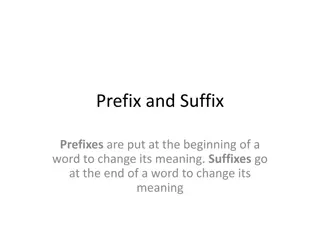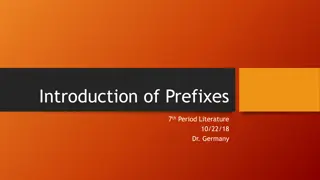Medical Terminology: Prefixes, Roots, and Suffixes
Exploring the world of medical terminology can be engaging and educational by delving into prefixes, root words, and suffixes. Prefixes alter the meaning of words, whereas root words are the base meanings, and suffixes modify the word endings. By combining these elements, new medical terms are formed, enhancing your knowledge in the field.
Download Presentation

Please find below an Image/Link to download the presentation.
The content on the website is provided AS IS for your information and personal use only. It may not be sold, licensed, or shared on other websites without obtaining consent from the author.If you encounter any issues during the download, it is possible that the publisher has removed the file from their server.
You are allowed to download the files provided on this website for personal or commercial use, subject to the condition that they are used lawfully. All files are the property of their respective owners.
The content on the website is provided AS IS for your information and personal use only. It may not be sold, licensed, or shared on other websites without obtaining consent from the author.
E N D
Presentation Transcript
Medical Terminology Is Fun! Prefixes/Root/Suffixes This program is funded in part/in whole by a U.S. Department of Labor - Employment and Training Administration grant. This work is licensed under a Creative Commons Attribution 4.0 Unported License.
Intro to Medical Terminology A Prefix is a letter or group of letters added to the beginning of a word to change it s meaning or to form a new word. A Root Word is the original meaning of a word without a prefix or suffix. A Suffix is a letter or group of letters added to the end of a word to change it s meaning or to form a new word.
Prefixes The following prefixes mean, not or without A AN Ab Dis Un In
Prefix Examples Some examples of connecting a prefix with a root word to change the meaning of a word: Root word: Like( enjoying something ) Prefix: Dis( not ) New word: Dislike Root word: Approve ( a favorable opinion ) Prefix: Dis ( not ) New word: Disapprove
More Prefixes The prefix, uni means one. A unicycle: The prefix, bi means, two A bicycle: The prefix, tri means, three A tricycle:
Measurements A liter is a unit of measurement when using the metric system. The prefix, milli means 1/1000 A milliliter (ml) is 1000 times less liquid than a liter Many doses of liquid medicine prescribed by a physician are ordered in milliliters.
Suffixes Root Word: Smoke Suffix: Free New word: Smokefree Root Word: Arth(r) (meaning joint) Suffix: itis (meaning inflammation of ) New word: Arthritis
Prefixes/Root/Suffixes Prefix: Un (meaning not) Root word: Believe( to take as real ) Suffix: able(meaning inclined to ) New word: Unbelievable Prefix: Hyper( high amount ) Root word: Glyco or glycogen (sugar) Suffix: emia (meaning blood ) New word: Hyperglycemia
Summary In summary, learning medical terminology is simply, connecting prefixes and/or suffixes to root words to form a new word. The most challenging aspect of learning medical terminology is to understand the meaning of commonly used prefixes and suffixes. You will be pleasantly surprised at how easy this is. It s fun. In addition, your knowledge of medical terminology will open your future with limitless opportunities in healthcare.
